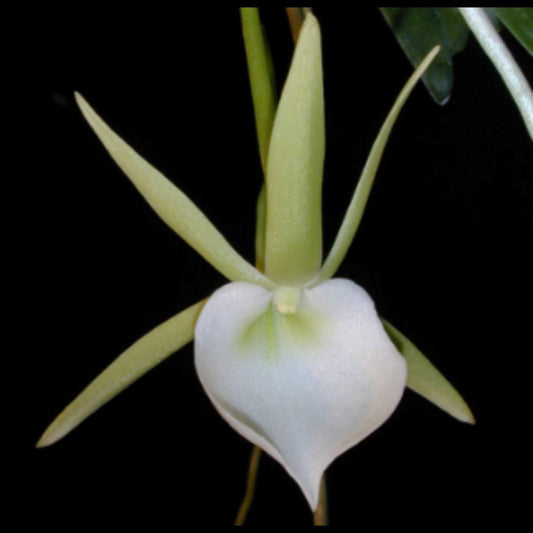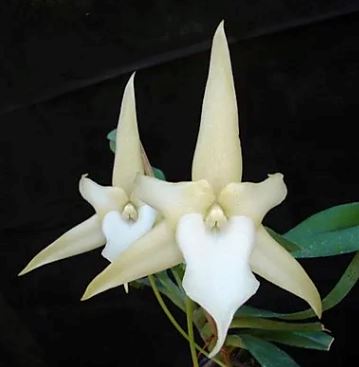
The Healing Power of Orchids: How Cultivating Orchids Can Benefit Various Health Condition.
Orchids, with their stunning beauty and intricate blooms, have captivated people for centuries. Beyond their aesthetic appeal, cultivating orchids can have profound health benefits, offering therapeutic advantages for various health conditions. Let's explore how this delightful hobby can be a source of healing and well-being, and provide some essential tips on how to start your own orchid collection.
1. Stress Relief and Hypertension
High blood pressure or hypertension is often exacerbated by stress. The calming effect of tending to orchids can significantly reduce stress levels, thereby helping to manage blood pressure. The act of caring for these delicate plants requires patience and mindfulness, fostering a tranquil environment that promotes relaxation.
Cultivating Tip: Start with a resilient variety like Phalaenopsis (Moth Orchid), which is known for its forgiving nature. Ensure it receives indirect sunlight and water it once a week, allowing the potting medium to dry out between waterings.
2. Cognitive Function and Alzheimer's Disease
Engaging in mentally stimulating activities can help maintain cognitive function, particularly for those at risk of Alzheimer's disease. Cultivating orchids involves learning about different species, their care requirements, and observing their growth cycles, which can enhance cognitive engagement and memory retention.
Cultivating Tip: Try growing Paphiopedilum (Lady Slipper Orchids), which come in a variety of colors and patterns. They thrive in low light and need to be watered regularly to keep their soil evenly moist.
3. Chronic Pain and Arthritis
Gardening activities, including orchid care, can provide gentle physical exercise that helps improve joint flexibility and reduce chronic pain, especially for individuals with arthritis. The repetitive actions of pruning, watering, and repotting orchids can help maintain hand dexterity and strength.
Cultivating Tip: Dendrobium orchids are a good choice. They require moderate light and should be watered thoroughly when the top of the potting medium feels dry.
4. Post-Traumatic Stress Disorder (PTSD)
For individuals coping with PTSD, engaging in activities that require focus and provide a sense of achievement can be highly therapeutic. Cultivating orchids offers a serene and rewarding experience, allowing individuals to connect with nature and find solace in the beauty of their blooms.
Cultivating Tip: Oncidium orchids, also known as Dancing Lady Orchids, are relatively easy to grow. They enjoy bright, indirect light and need to be watered when the potting mix is almost dry.
5. Cardiovascular Health
The physical activity involved in orchid care, combined with the stress-reducing benefits, can contribute to overall cardiovascular health. Gardening activities have been shown to lower the risk of heart disease and improve overall cardiovascular function.
Cultivating Tip: Cattleya orchids, known for their large, fragrant flowers, thrive in bright light and need to be watered when the medium is almost dry. They prefer a well-draining potting mix.
Tips for Starting an Orchid Collection
-
Research and Choose the Right Orchids: Begin with easy-to-grow varieties such as Phalaenopsis, Dendrobium, or Paphiopedilum. These orchids are more forgiving and can thrive in various conditions.
-
Understand Their Needs: Learn about the specific light, temperature, humidity, and watering requirements for each type of orchid. This knowledge will help you create an optimal environment for your plants.
-
Invest in Quality Potting Mix: Orchids typically require a well-draining mix. Bark, sphagnum moss, and perlite are common components. Make sure the mix suits the specific needs of your orchid species.
-
Proper Watering: Overwatering is a common mistake. Orchids generally prefer to dry out between waterings. Water them in the morning to allow excess moisture to evaporate during the day.
-
Provide Adequate Light: Most orchids need bright, indirect light. South or east-facing windows are ideal. If natural light is insufficient, consider using grow lights.
-
Maintain Humidity: Orchids thrive in environments with 50-70% humidity. Use a humidity tray, mist your plants, or use a humidifier to maintain the necessary moisture levels.
-
Regular Feeding: Orchids require regular feeding with a balanced, water-soluble fertilizer. Fertilize every two weeks during the growing season and reduce feeding during the dormant period.
-
Repot When Necessary: Orchids need repotting every one to two years or when the potting mix breaks down. Repotting helps prevent root rot and provides fresh nutrients for growth.
Cultivating orchids can be a therapeutic and rewarding experience, offering numerous health benefits beyond their stunning beauty. Whether you are managing hypertension, enhancing cognitive function, alleviating chronic pain, coping with PTSD, or improving cardiovascular health, orchids can be a source of healing and well-being.
Orchids can also foster a deep sense of accomplishment and purpose. Watching these intricate plants thrive under your care can be immensely satisfying, providing a boost to your self-esteem and a sense of pride in your nurturing abilities. This sense of achievement is particularly beneficial for individuals who may feel isolated or disconnected, offering them a positive focus and a meaningful hobby to engage in.
Moreover, the aesthetic appeal of orchids contributes to a more pleasant and calming living environment. Their vibrant colors and delicate forms can transform any space into a serene oasis, promoting mental clarity and a peaceful atmosphere. This visual connection to nature can reduce feelings of anxiety and restlessness, making your home or workspace a more inviting and restorative place. Embracing the hobby of orchid cultivation thus not only enhances your physical health but also enriches your emotional and mental well-being.
Start your orchid collection today and embark on a journey of growth, both for your plants and your health.








